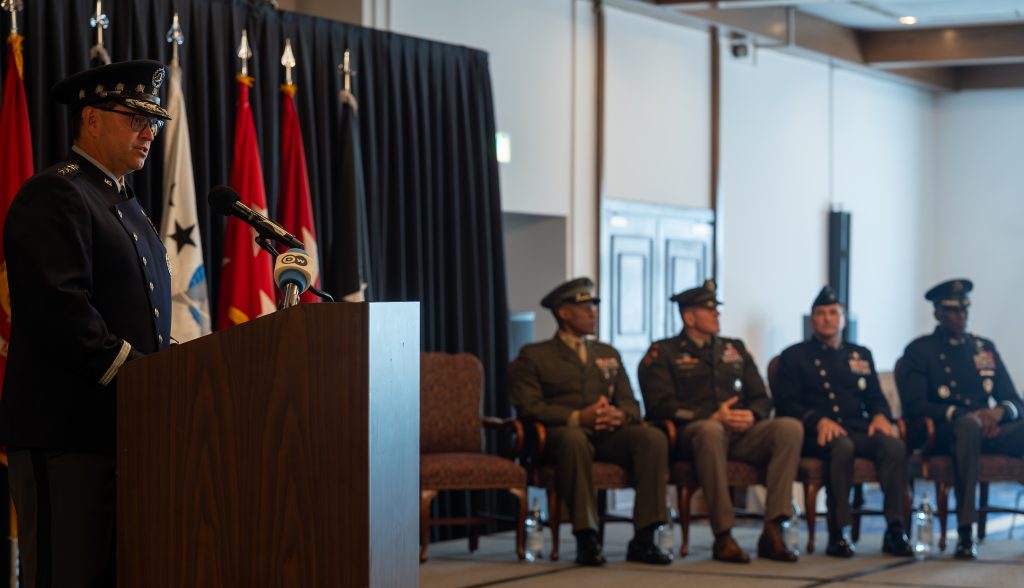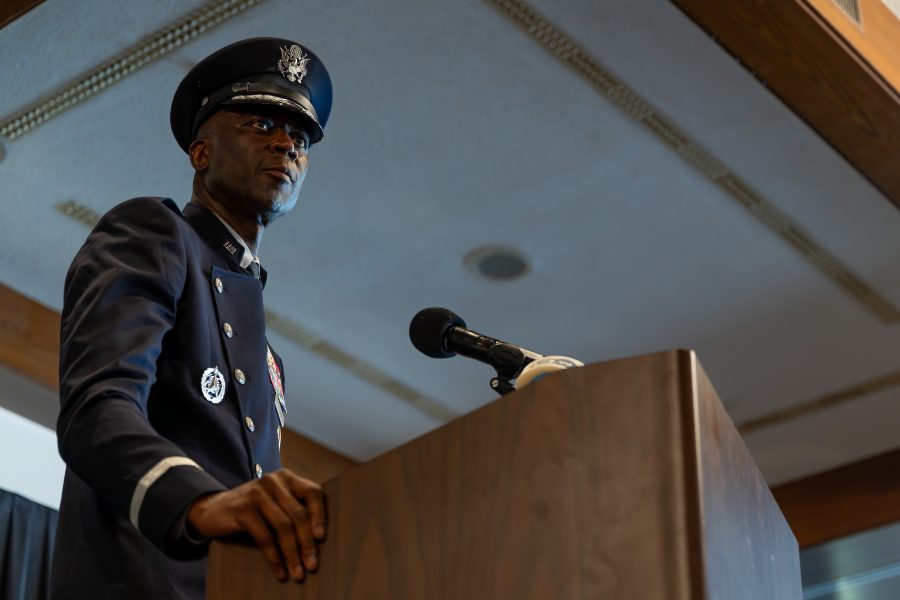Less than nine months after standing up, U.S. Space Forces Europe and Africa got a new commander Aug. 13 when Brig. Gen. Jacob Middleton succeeded Col. Max Lantz—an especially noteworthy move for given the Space Force’s small pool of general officers and the service’s efforts to beef up its component commands.
SPACEFOREUR-AF, activated Dec. 8, 2023, with Lantz as its first commander. Despite its small size, leaders say the component is vitally important for establishing a Space Force presence in important regions.
The component has “significantly increased the capability of our joint force while promoting security, stability, and prosperity for our partners,” U.S. Africa Command boss Marine Corps Gen. Michael E. Langley said. “They bring a level of technical expertise to a domain that has rapidly advancing and changing. We need you now more than ever.”
“The command continues to be decisive in U.S. support to Ukraine and the wider defense of Europe,” added U.S. European Command chief of staff Army Maj. Gen. Peter B. Andrysiak Jr. “And being EUCOM’s voice for space, the formation worked tirelessly to establish capability with our new NATO allies and also helping build and synchronize a space engagement strategy nested with EUCOM objectives.”
Both Langley and Andrysiak noted how the component has already contributed to exercises and helped train allies on the importance of space.
For Lantz, standing up the new unit came with plenty of responsibility for a field grade officer.
“Col. Lantz had the unique pleasure of reporting to two separate combatant commanders as well as the Chief of Space Operations. Every Colonel’s dream: three four-star bosses,” CSO Gen. B. Chance Saltzman joked.

It was a challenge Space Force leaders anticipated when they first started standing up component commands in late 2022.
While U.S. Space Forces Indo-Pacific activated with a brigadier general commander, every other component would have to be led by a colonel, then-Vice CSO Gen. David D. Thompson said at the time, because the service simply wasn’t big enough. By law, the Space Force can only have 21 general officers, with some exceptions.
“Those future component commanders” will need to “punch above their weight,” Thompson said. “You’re going to have to sit at the table with everybody else, and you’re going to have to deliver just like the rest of those people. So it’ll be a challenge to them.”
In Europe and Africa, for example, the heads of the Army, Navy, and Air Force components are all four-stars, while the Marine Corps and Special Operations Command components have two-star leaders.
Langley, Andrysiak, and Saltzman all praised Lantz for advocating for space and ensuring the domain is integrated into planning, exercises, and operations.
Now, Middleton will take over and be responsible for answering the question he said he gets all the time: why space?
“When you take a look at space, I would encourage you to take a look at what we’re doing in the other domains to give you an idea of what we need to do in space,” Middleton said. “Adversaries are recognizing the importance of space. That’s what makes space a contested environment. And we’re going to do here as a component command is to make sure that the advantage of space is always in favor of the U.S. and our allies and partners.”
Having a general officer to lead that mission is important, Saltzman said.
“It’s no coincidence that we brought a general officer to lead this group, elevating the command to a one-star level,” he said. “It reaffirms the Space Force’s commitment, both to the joint force and to our international partners. It continues normalizing the space domain with those of our sister services, each one important and necessary for the success of our combined operations.”
Lantz, for his part, said Middleton “will take the command to the next level and further bring space capabilities to AFRICOM and EUCOM.”
Space Forces Europe and Africa isn’t the only component to get a bump in the rank of its commander. U.S. Space Forces Korea went from Lt. Col. Joshua McCullion to Col. John Patrick in mid-July, and during a recent visit to the Middle East, Chief Master Sergeant of the Space Force John Bentivegna suggested Space Forces Central could get a boost too.
“There’s just an expectation regardless of how many Guardians you have, whether it be 300,000 or 10,000, to integrate at the appropriate level,” Bentivegna said. “And so I think we’re trying to articulate the discussion and maybe to expand the headspace for more [general officers] and I think one of those targets would be the service component for CENTCOM.”
Pentagon Editor Chris Gordon contributed to this report.

